
Let’s not kid ourselves. When we say “cheap ski holiday” we’re not talking about something that costs a couple of hundred quid. Whatever you do, and however hard you try, once you’ve factored in your lift pass as well as accommodation, food and travel, you’re still going to spend at least £700-800 for a week.
But that doesn’t mean you can’t make BIG savings on the cost of your winter trip. Here’s how.
1. Ski the low season if you don’t have kids
Ski holiday prices are not the same for the whole winter. The weeks of New Year and February half term are the most expensive: and in early December, most of January, and mid-March they’re considerably cheaper. In fact, they’re often less than half the price, especially when late-booking discounts have been factored in. Just to take one example from the 2018-9 season: at the time of writing Chalet Papillon 1 in La Rosiere, operated by Ski Beat, costs £529pp for a week from January 5, chalet board, including flights and transfers, based on two sharing. Over half-term, it’s £1,349pp for the week starting February 16.
2. Or target Easter and Christmas if you do
Ever since regulations were tightened up concerning term-time holidays for children, it’s been tougher for families to avoid peak-season pricing. However, Christmas and Easter holidays are both cheaper than New Year and half-term, and they can be lovely times for a ski holiday – provided you take a few precautions about the snow.
Easter is late this season, falling on April 21 – and many schools don’t break up for the holidays until April 5. So – more than ever – you need to a target a high-altitude ski resort, as well as adopting spring skiing tactics to avoid slushy slopes. Meanwhile, snow quality at Christmas has become an issue again, thanks to three very slow starts to winter in 2014, 2015 and 2016 – especially in low-altitude resorts. The early weeks of last season were much better: but still, it’s well worth aiming high for this holiday too – or targeting a resort such as Canazei, which has a world-class snow-making system. The alternative is to wait until early December to book the trip. By then you should know whether or not the lower resorts have good cover.
Nevertheless, if you shop around, you can find good value for these weeks. This Christmas, for example, a week at the Chalet Champs Avalins in Val d’Isere with Ski Total is £770pp, chalet board, including flights and transfers from December 23, compared with £1,238pp over February half term. What’s more, thanks to its lofty slopes, favourable climate and high-tech, underground snow-making factory, Val d’Isere is not a risky Christmas destination.
3. Stay in a self-catering apartment
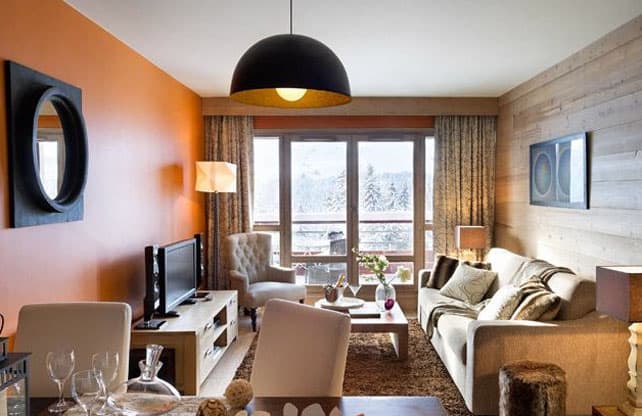
Self-catering apartments are almost always cheaper than hotels or catered chalets – even when you factor in the cost of the food. Admittedly, for some parents the idea of cooking every night, on top of a day’s skiing, will sound more like purgatory than a holiday. But lots of families do it – often clubbing together with their friends to create a more upbeat experience and a chance to share the chores. As a result, big multi-family apartments sell out long before smaller ones during the school holidays. If you want one for a peak week such as New Year or February half term, you should book it by the end of September.
Prices can be refreshingly low. With Peak Retreats for example, a week in a self-catering apartment in the small but well-rounded resort of La Norma in France would cost a family of four £418pp, self-drive, over February half-term, and including a return Eurotunnel crossing.
Those without kids should also give the idea serious thought. You don’t have to pussyfoot around staff like you do in a chalet, and you can eat whenever you want. The cooking can be a blast, too: especially if someone opens a bottle of wine and everyone lends a hand.
Just remember, if you’re driving to the resort, do as much of your shopping as possible in one of the valley hypermarkets – before the final climb to your destination. In-resort prices can be eye-wateringly high.
France is the Alpine capital of the self-catering apartment, but you’ll find them all over the mountains (those in Austria tend to be the roomiest). Tour operators specialising in apartments include Ski Collection, Peak Retreats, Ski Amis, PowderBeds, Erna Low, and Ski France.
4. Drive to the mountains
If you live in the south-east of the UK, you can drive to the French Alps in about 12 hours – if you’re lucky with the weather and the traffic. And provided you can fill the car with friends and family, it’ll work out cheaper than flying – even in a low-season week.
Use viamichelin.co.uk to help calculate costs before you go. At current prices, for a family-sized car holding four people, expect to pay around £100pp return for a London-to-Meribel run, including fuel, and motorway tolls in France, but not the Eurotunnel crossing. That’s the door-to-door cost by the way. You’ll struggle to sort out travel to an airport in the UK, flights, and transfers up to the resort for the same price. Plus, if you drive, you can carry more baggage, too.
Finally, don’t forget to check out winter driving tips, too.
5. Stay in the valley below a big ski area…
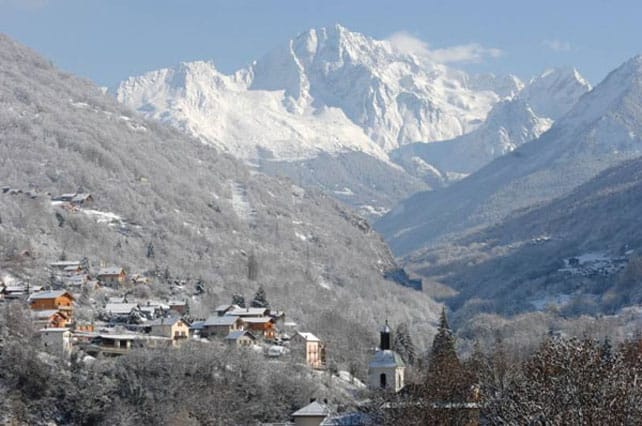
You can enjoy big ski areas – such as the 3 Valleys in France (home to Meribel, Courchevel, etc), and the 4 Valleys in Switzerland (home to Verbier) – at lower cost by staying in the valley below them.
For example, if you fancy skiing the 3 Valleys, check out Brides les Bains below Meribel, which is linked to the pistes by a 25-minute gondola ride. Here, a three star hotel such as the Hotel Altis Val Vert can cost less than half the price of a three-star on the slopes in Meribel in January or March.
Those who want to ski in Verbier for less should check out the village of Le Chable. It’s only a gondola ride below its famous neighbour, but like-for-like accommodation here is about 40% cheaper.
6. Or in one of its less fashionable villages
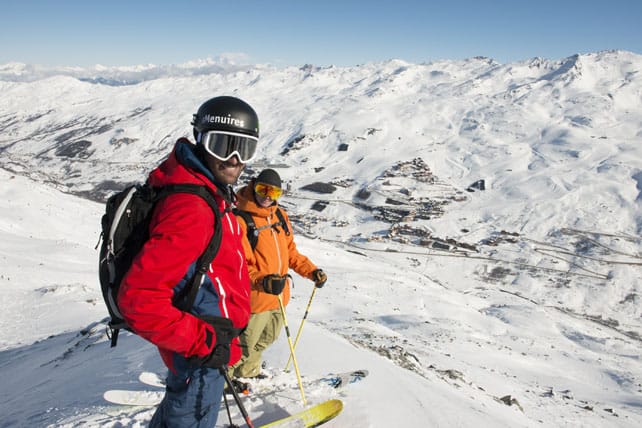
In all the big ski areas there’s usually one village that fashion forgot. In the case of the 3 Valleys, it’s Les Menuires. In the Val d’Isere-Tignes ski area, it’s Tignes-les-Brevieres. The price of almost everything in these villages – accommodation, bars, restaurants, ski hire, ski school – is cheaper than in their near neighbours, which share exactly the same lift system.
7. Avoid the A-list ski areas altogether
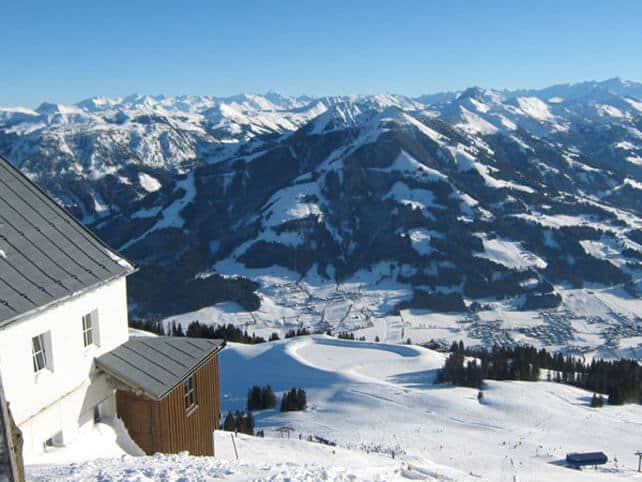
The A-list ski areas are famous for a good reason: nowhere else can quite match the extent and convenience of their lift systems or the terrain they serve.
But that doesn’t mean the skiing’s rubbish elsewhere. In Austria, for example, the SkiWelt offers 284km of seamless skiing, and some of the finest top-to-bottom ski runs we know. Plus, it’s only a short bus ride to Kirchberg and Kitzbuhel, where you’ll find another 179km of pistes. Yes, the altitude is low – so you need to ski it in January or early February rather than at the beginning or end of the season. But by way of compensation prices are cheaper for everything: and you can lower them further by staying in the less-popular villages of Hopfgarten and Brixental rather than Soll and Westendorf.
Or consider Serre Chevalier, south of Grenoble. Here, a week in a three-star hotel can be half the price of an equivalent property in Meribel: but you still get 250km of piste on your doorstep. Among them are some scintillating intermediate level descents, which drop through more than 1000 vertical metres. Another canny option is Val Cenis, tucked away in the Haute Maurienne behind the Three Valleys – especially if you bring a car and buy the Eski-Mo lift pass, which opens up a total of 300km of pistes in five neighbouring resorts.
For more ideas, check out our guide to ski resorts that offer great value for money.
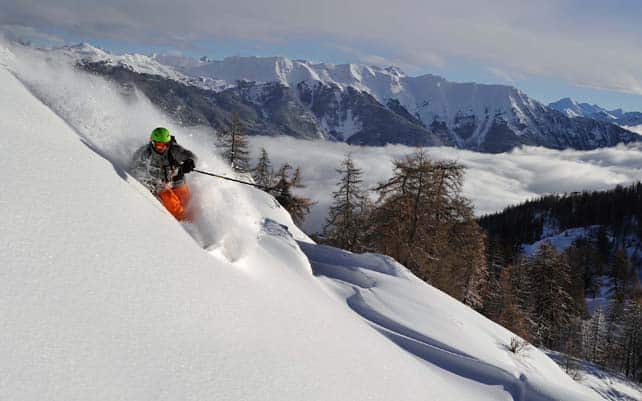
8. Go in a group
Tour operators love big groups – and offer free places to attract them. Generally, you can reckon on one person in ten going free – and you may be offered two-for-one lift passes and equipment hire deals, too. Shop around to see what you can get. For example, Inghams is currently offering one free place in every seven for larger groups, as well as free lift passes for group leaders.
9. Book early…
Booking early is a great idea if you’re targeting February half term (which is unlikely to be discounted at the last minute), or you’re travelling in a big group and want to fill an entire chalet. One of the best times to do it is during the winter before you want to ski: that way, you’ll often get next year’s holiday at this season’s prices. Look through the summer for come-hither discounts, too, and keep checking our deals page for the latest round-up of ski holiday deals and discounts.
10. Or book late
If you’re targeting a low-season week, and you’re not too fussy where you end up – then don’t book until the last minute. It’s one of the surest routes to a cheap ski holiday. Pre-Christmas, mid-January and before and after the school break at Easter are the best times for bargain-hunters – when low-season prices are cut still further by the tour operators. This winter, tour operators offering Christmas holidays from December 19-26 are a fruitful source of discounts, too.
Prices can be refreshingly low. In January 2018, for example, some last-minute package holidays were going for less than £450pp for a week, including flights and transfers. At this price, most were in self-catering apartments, but there was the odd catered chalet or chalet-hotel available too. Once again, our round-ups of the latest deals and discounts have some of the tastiest offers. Check out the deals pages of the tour operators, too, as well as specialist travel agents such as SNO.
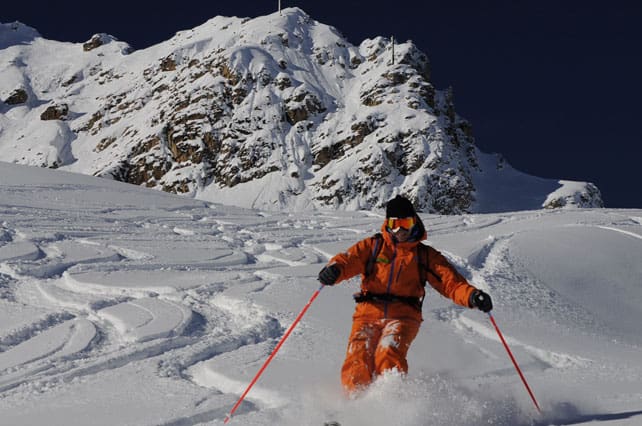
11. Snap up a free lift pass
Sometimes you’ll find free lift passes offered with self-catering apartments during quiet weeks of the season. Given these often cost £250-300, they can take a big bite out of the price of a trip. For example, this winter the accommodation-booking website of French resort Serre Chevalier is offering free lift passes in quiet weeks. At the time of writing, for a week in January 2018, you can get a basic studio apartment for four people for €226pp including a six day lift pass (worth €259). So you’re effectively getting your accommodation for free, with €33 cashback (but bear in mind that travel to the resort isn’t included).
12. Bunk down at night
Don’t forget many resorts have youth hostels – and if you don’t mind sharing a bunk room you can get accommodation at a fraction of the normal price. In France, for example, the sport-for-all organisation, UCPA offers complete holidays including full-board accommodation in bunk rooms, lift pass, equipment hire and tuition. You’ll find branches in many famous resorts – and British outfit Action Outdoors packages them up with return coach travel. For example, in early January 2019 a week’s all-inclusive holiday with 12hrs of lessons in Flaine costs £767pp. The only thing you’ll need to buy on top of that is your drinks.
13. Go Airbnb
Airbnb is now well-established in the mountains; and in both Europe and North America you’ll find locals offering spare rooms or even whole apartments outside the usual channels – sometimes for a fraction of the normal cost. Amongst the offering we’ve come across are a studio apartment (sleeps 2) near Bruson (in Verbier’s ski area) for £34pp a night in January, and a two-room flat (sleeps 4) near Gressoney – part of the Monterosa ski area – for £16pp per night in the same month. (Please make sure you use the company’s in-house payment system when booking. That way, the money is held by Airbnb until 24 hours after you’ve arrived, and only then released to the owner – it’s the surest way to avoid fraud. If any owners ask you to pay them direct back away quickly.)
14. And don’t forget to make the odd sandwich at lunchtime…
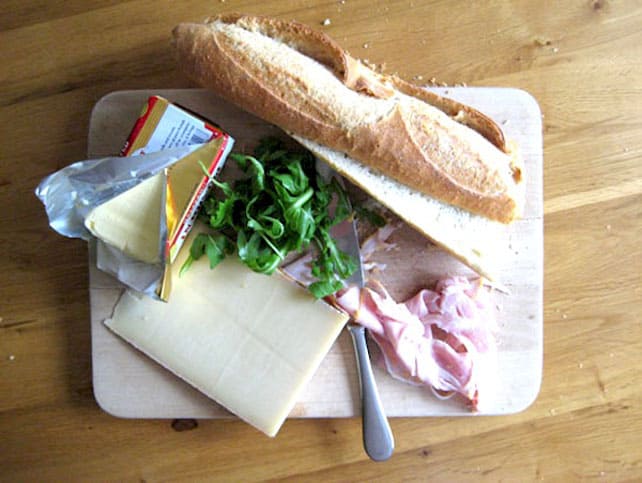


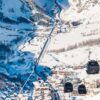


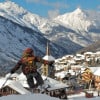
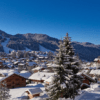



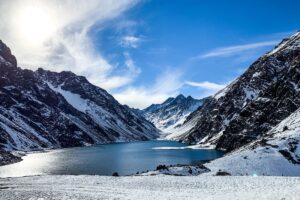


On certain dates such as the British half term week, when ski holiday prices are expensive, it’s a good idea to look at European tour operators, particularly tour operators in Germany, as Germany doesn’t have a February school holiday, so prices don’t peak as much as with British tour operators.
Remember that if you drive the ferry is half the price and you can drive to the Alps not paying a penny in tolls, it takes about 2 hours more.Also if you live up North that the ferry from Hull is MUCH more sleep friendly and if there is more than one of you just as expensive as the tunnel
Good points, David. But driving all the way to the Alps on the Routes Nationales, sounds tough! I’ve never tried it. What’s it like?
Sorry I didn’t reply to this some 3 years ago …I drive mainly on the motorways …but via Belgium and Luxembourg (cheap Fuel) and then a scenic ride via Besançon to Gex and then to Annecy ,Just a note that the hotels do not usually charge a premium for the week before Xmas i have come home on the Saturday ( the 22nd this year ) and the resorts sometimes offer special deals for this week for instance Obertuern offer opening week deals ..anyway I go to Italy much better value than France ..The Dolomites are wonderful and I have found nice smaller hotels for €50 half board in January and not much dearer in season..I am off ther in January and then going to Sinai in Romania …its only another 1k miles